Question And Answer
Publications
Articles, publications, books, tools and multimedia features from the U.S. Institute of Peace provide the latest news, analysis, research findings, practitioner guides and reports, all related to the conflict zones and issues that are at the center of the Institute’s work to prevent and reduce violent conflict.
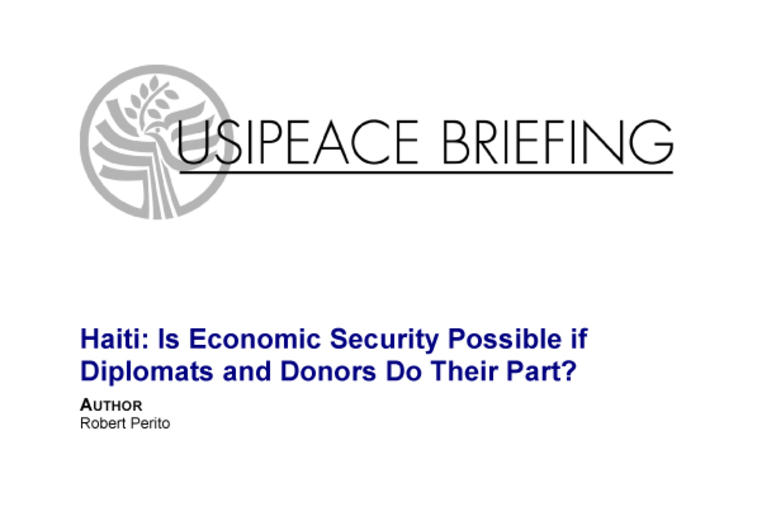
Haiti: Is Economic Security Possible if Diplomats and Donors Do Their Part?
In 2009, Haiti has been the subject of an unprecedented diplomatic initiative led by the United Nations. In rapid succession, Haiti received visits from the UN Secretary General Ban Ki-moon, the UN Security Council, former President Bill Clinton and Secretary of State Hillary Clinton and numerous senior delegations from Caribbean and South American countries
Won’t You Be My Neighbor: Syria, Iraq and the Changing Strategic Context in the Middle East
Overall, Syria has marginally benefited from the war in Iraq at both the regional and international levels. After watching the U.S. military unseat the Baathist regime next door in 2003 with unprecedented speed, it looked to many observers—including some in Damascus—as if Syria would be next in line.
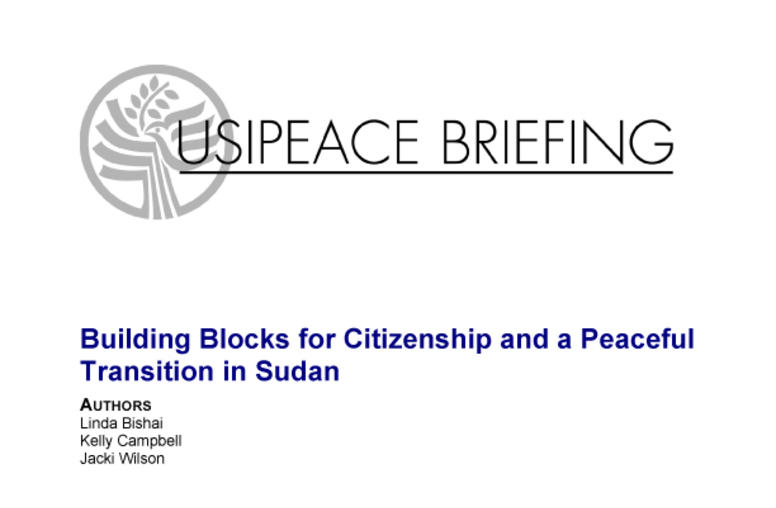
Building Blocks for Citizenship and a Peaceful Transition in Sudan
Sudan’s upcoming elections in 2009 raise hopes and concerns for the country’s future. According to the Comprehensive Peace Agreement (CPA), signed in 2005 between the ruling National Congress Party (NCP) and the Sudan People’s Liberation Movement (SPLM), Sudan is scheduled to hold national and state level elections in 2009.
On the Issues: Syria
The recent war in Gaza has again underscored the tensions involved in brokering sustainable peace in the Middle East. USIP has actively explored the critical role neighboring countries in the Middle East play in the success of creating peace throughout the region. In this "On the Issues," USIP presents a collection of resources and tools about the role of Syria in peacebuilding efforts. Building upon the foundation started in 2005 with the Syrian Working Group, USIP has held a number of recen...
Oral Histories: Iraq Provincial Reconstruction Teams (2008-2009)
The Iraq PRT program has highlighted the challenges that the U.S. government faces in conducting operations in conflicted environments. The Iraq PRT Project collected insights and lessons learned from government, military, and non-governmental officials. Interviews were conducted by the Association for Diplomatic Studies and Training under a contract with the Institute of Peace.
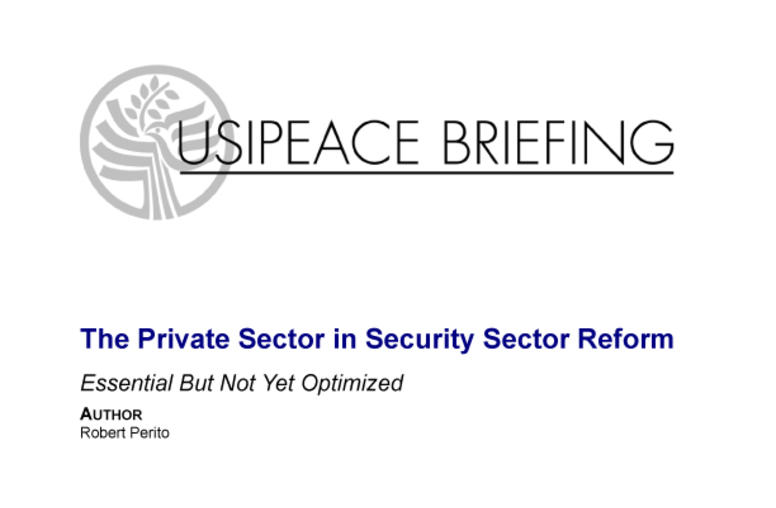
The Private Sector in Security Sector Reform: Essential But Not Yet Optimized
While the U.S. and world economies are slowing markedly, Security Sector Reform (SSR) is a growth industry for the private sector. U.S. government employees may set SSR policy and design projects, but implementation is extensively outsourced to private contractors.
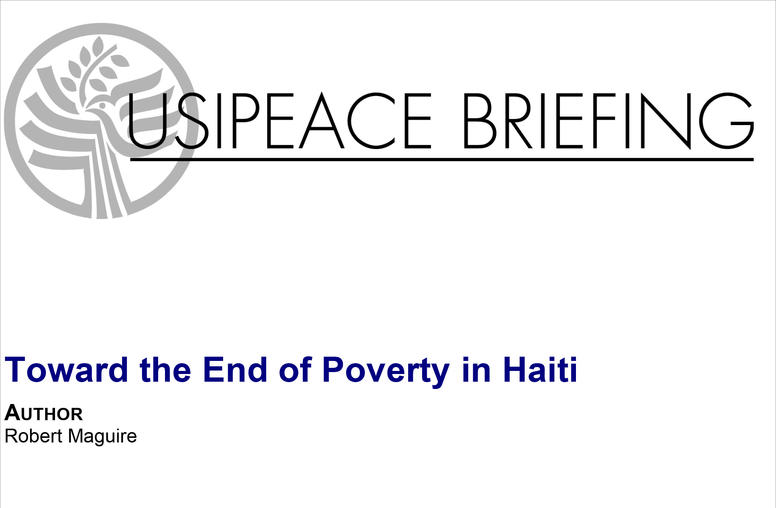
Toward the End of Poverty in Haiti
In July 2006, Haitian poet and historian Jean-Claude Martineau spoke at USIP and said that Haiti is the only country in the world with a last name—“Haiti, poorest country in the western hemisphere” —as described in the media. Sadly, in the two years since, conditions have worsened. Four severe storms that struck Haiti in September 2008 only exacerbated the already critical problem of the country’s poverty.
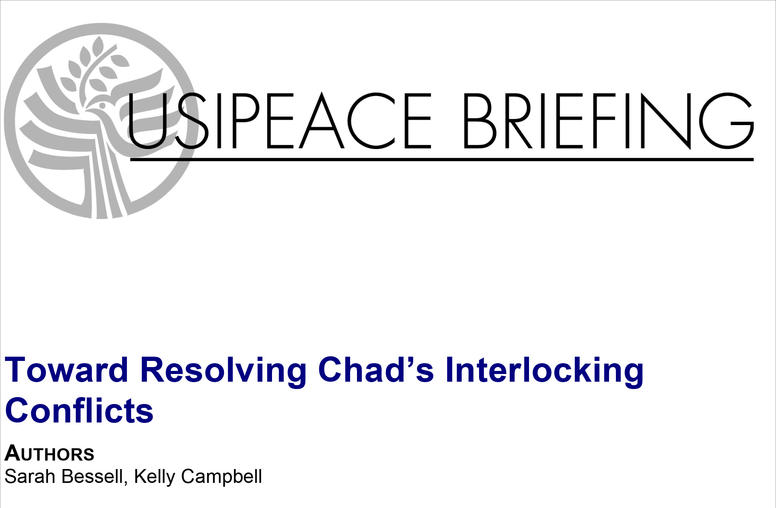
Toward Resolving Chad’s Interlocking Conflicts
The fragility of the Chadian government, as well as the fragmentation among Chadian civil society, political parties, and rebel movements, poses significant challenges that Chadian civil society, regional governments, African institutions and the international community must address with a coordinated strategy. Although the situation in the country is often examined through the lens of the Darfur crisis, several internal factors drive the instability in Chad and its regional actions.
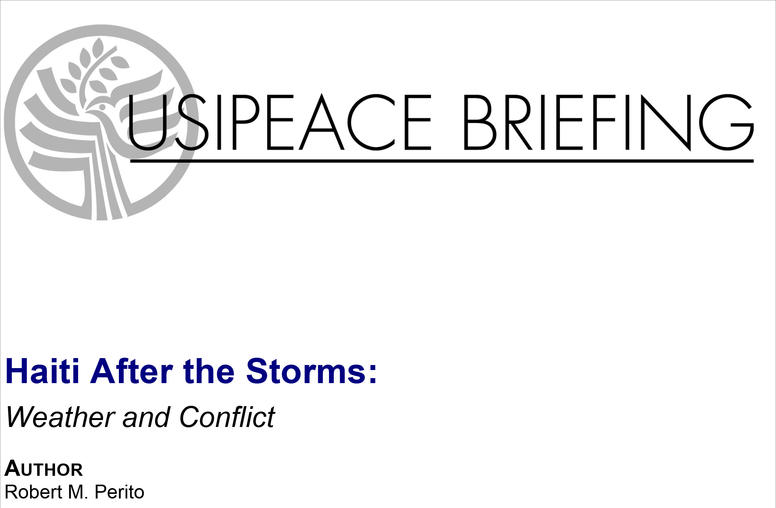
Haiti After the Storms: Weather and Conflict
In September 2008, four hurricanes and tropical storms—Fay, Gustav, Hannah and Ike—slammed into Haiti with devastating force. Nearly 800 people were killed, 300 remain missing and more than 500 were injured.
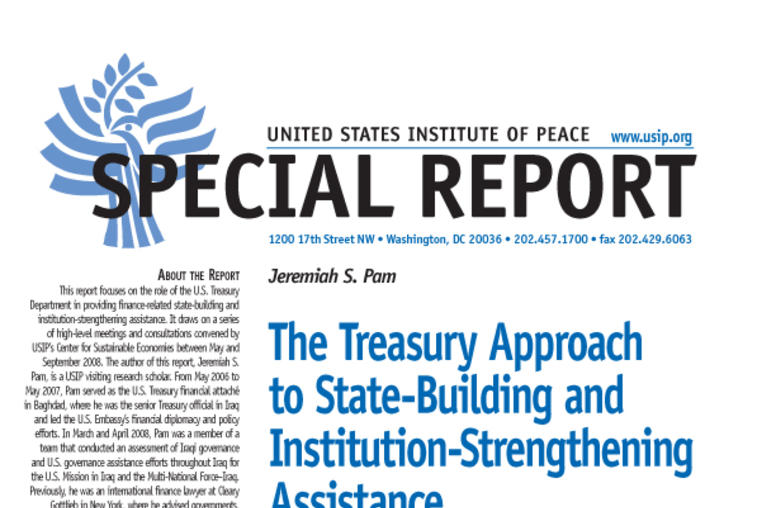
The Treasury Approach to State-Building and Institution-Strengthening Assistance: Experience in Iraq and Broader Implications
Drawing on a series of consultations convened by USIP's Center for Sustainable Economies, author Jeremiah S. Pam focuses on the role of the U.S. Treasury Department in finance-related state-building and institution-strenthening. Specifically, the report identifies key dynamics in the field and discusses aiding local institutions, providing technical assistance, improving interagency coordination and enabling local champions for such efforts.